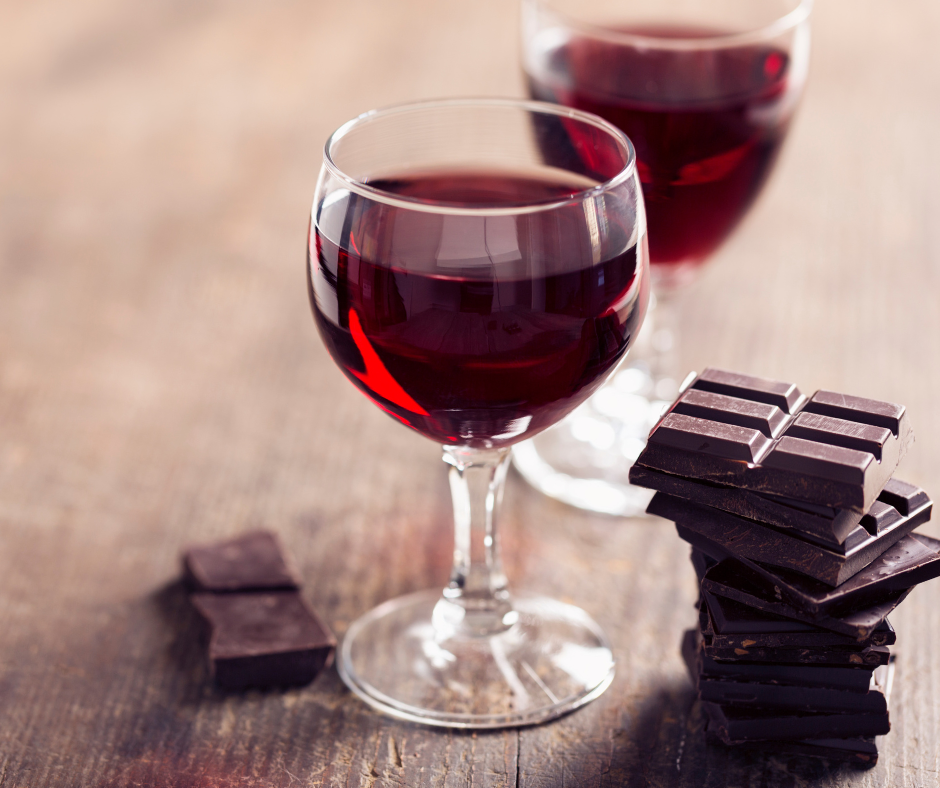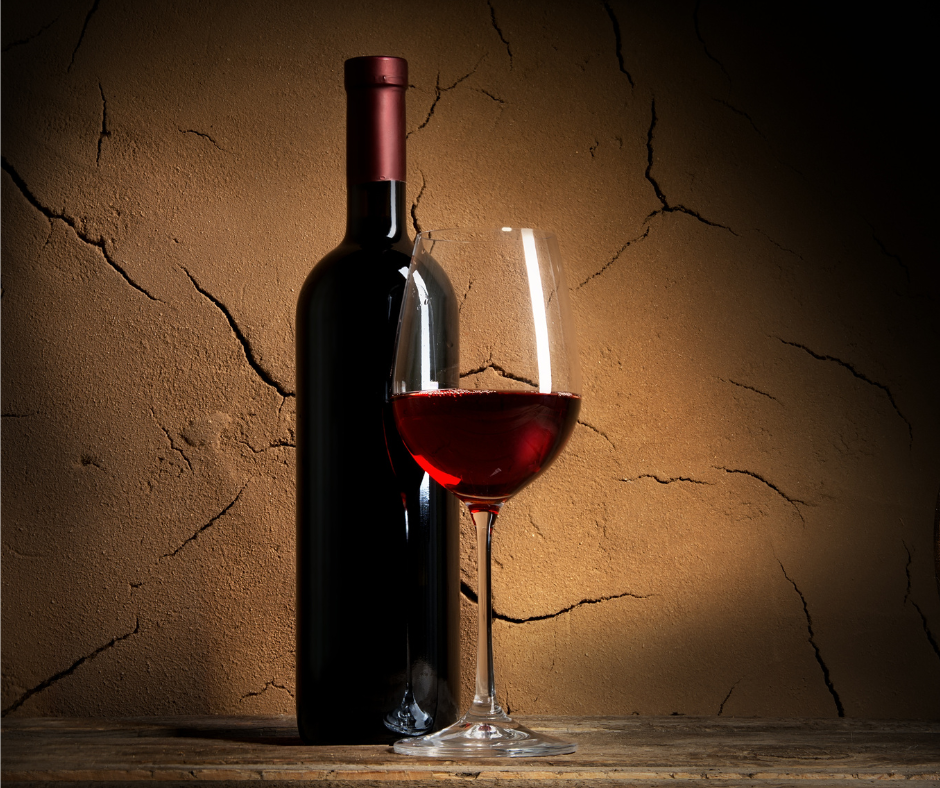Introduction
Have you ever wondered how and why wine makes you feel intoxicated? This article will unravel the mysteries behind the influence of wine on intoxication to answer ‘Does Wine Get You Drunk?‘. Wine has been celebrated for centuries as a beverage that enhances social experiences, but understanding its effects on the body goes beyond mere enjoyment.
Understanding The Effects Of Wine On Intoxication
Wine has long been associated with relaxation, celebration, and a good time. However, Does Wine Get You Drunk? In this article, we will delve into the factors that contribute to the intoxicating effects of wine and debunk some common myths surrounding wine versus other types of drinking.
The Alcohol Content Of Wine: How It Compares To Other Drinks
Regarding alcohol content, wine falls in the middle compared to other alcoholic beverages. The alcohol content of wine typically ranges from 12% to 15%, although it can vary depending on the type and style of wine. This puts wine on par with beers, which generally have an alcohol content ranging from 4% to 8%.
However, it’s important to note that wine is often consumed in larger quantities than spirits or liquors, which typically have a higher alcohol content. This is because wine is commonly served in larger glasses and enjoyed over a longer period, leading to a slower and more gradual absorption of alcohol into the bloodstream.
Debunking The Myth: Wine Drunk Vs. Other Types Of Drunk
There is a common belief that wine drunk is different from other types of drunk. Some people claim that wine gives them a more relaxed and mellow buzz compared to the effects of other alcoholic beverages. However, the notion of different types of drunk is largely subjective, and individual experiences vary.
The effects of alcohol on the body are primarily determined by the amount consumed and the rate at which it is consumed. Wine may be associated with a more relaxed feeling due to its lower alcohol content than spirits or liquors. Additionally, certain compounds in wine, such as antioxidants and tannins, can contribute to a more complex taste and potentially affect the overall experience.
It’s also worth noting that personal preferences, psychological factors, and individual tolerance levels play a significant role in how one perceives the effects of alcohol. Factors such as body weight, metabolism, hydration levels, and food consumption can further influence alcohol absorption and its subsequent effects.
In conclusion, wine can indeed make you drunk, just like any other alcoholic beverage. The key factor is the alcohol content, and wine generally falls within the range of other alcoholic drinks. However, the notion of wine drunk versus other types of drunk is largely subjective and can vary from person to person. It’s essential to consume alcohol responsibly and be aware of your limits to ensure a safe and enjoyable experience.
Does Wine Get You Drunk? – Factors Influencing The Intoxication
Wine enthusiasts and occasional drinkers alike have often pondered the mysteries of wine and its intoxicating effects. Does Wine Get You Drunk? What factors contribute to the level of intoxication experienced when consuming wine? Let’s delve into these wine mysteries and explore the key factors that influence the intoxication experience with wine.
The Role Of Wine Characteristics And Consumption Habits
The alcohol content of wine plays a significant role in determining how drunk one gets when consuming it. Generally, the higher the alcohol content, the more pronounced the intoxicating effects. Wines with a higher alcohol percentage, such as fortified wines or some red wines, can potentially lead to quicker intoxication. It is essential to pay attention to the alcohol content on the bottle, as it can vary greatly between wines.
Another crucial factor is the quantity of wine consumed. The more wine consumed, the higher the blood alcohol concentration (BAC) becomes, leading to increased intoxication. Consumption habits, such as drinking on an empty stomach or quickly consuming multiple glasses, can intensify the effects and speed up the intoxication process.
Moreover, individual factors influence the absorption and metabolism of alcohol. Factors such as weight, age, gender, and overall health can affect how the body processes alcohol. It is crucial to be aware of one’s tolerance and to drink responsibly.
Exploring Emotional Responses And Perceived Effects Of Wine Drunk
It is no secret that the consumption of wine can influence one’s mood and emotions. The experience of being intoxicated with wine can vary greatly depending on an individual’s emotional state and mindset.
Firstly, drinking wine induces relaxation and can create euphoria. This is due to alcohol’s ability to affect the central nervous system, leading to feelings of calmness and contentment. However, excessive consumption can have the opposite effect and lead to negative emotions such as aggression or sadness.
Secondly, the perceived effects of being drunk on wine may differ among individuals. Some may experience heightened sensory perception, such as enhanced taste and smell, while others may feel a loss of inhibition and increased sociability. These effects can vary depending on personal differences and individual responses to alcohol.
In summary, wine can get you drunk, but various factors can influence the level of intoxication experienced. The alcohol content and quantity of wine consumed are essential factors to consider. Additionally, individual factors such as weight, age, and overall health can impact alcohol absorption and metabolism.
Furthermore, wine drunk can evoke different emotional responses and perceived effects, with relaxation and euphoria being common experiences. Drinking responsibly, being aware of personal tolerance, and considering wine consumption’s emotional and physiological effects are crucial.
Remember, enjoying wine responsibly and in moderation can enhance the overall experience and allow you to savor the flavors and complexities that make wine an intriguing beverage.

Health Considerations And Tips For Wine Consumption
Dealing With Dehydration: Why Hydration Is Important
Enjoying a glass of wine or two can be a pleasant experience, but it’s essential to consider the potential impact on your hydration levels. Alcohol, including wine, is a diuretic, which means it increases the production of urine and can lead to dehydration. To mitigate this, staying hydrated is crucial by drinking plenty of water alongside your wine consumption. This will help counteract the diuretic effects of alcohol and ensure you stay properly hydrated.
Wine Drinking In Moderation: Understanding The Impact Of Consumption Rates
Moderation is key when it comes to wine drinking. It’s important to understand the impact of consumption rates to avoid getting drunk. The rate at which alcohol is metabolized differs from person to person, depending on factors such as body weight, metabolism, and tolerance. Generally, it takes the liver about one hour to metabolize one standard drink, which equates to about 14 grams of pure alcohol. This means that if you consume wine at a moderate pace, such as one glass per hour, your body will have enough time to process the alcohol and minimize the risk of getting drunk.
It’s worth noting that the alcohol content in wine can vary significantly. This can affect how quickly you may feel the effects. Generally, wines can have an alcohol by volume (ABV) ranging from 5% to 20%. Wines with higher ABV will have a more potent effect and may increase the likelihood of getting drunk faster.
To fully enjoy the taste of wine without getting excessively intoxicated, it’s recommended to sip your wine slowly, allowing your taste buds to savor the flavors. Pay attention to the alcohol content of the wine you consume and consider sticking to lower ABV options, such as lighter wines or those with a lower alcohol content. This will help you maintain a more moderate and enjoyable drinking experience.
In conclusion, while wine can indeed make you drunk, it’s important to understand and consider the health implications and consumption rates if you choose to enjoy this alcoholic beverage. Staying hydrated and drinking in moderation are key factors in ensuring a safe and enjoyable wine-drinking experience. So next time you reach for a glass of wine, remember to do so responsibly and consider your health and well-being. Cheers!

Unraveling The Mysteries Of Wine Drunk
The Psychology Of Wine Perceptions: How Expectations Shape Experiences
Have you ever wondered why wine seems to have a stronger effect on you than other alcoholic beverages? The answer lies in the psychology of wine perceptions.
Regarding wine, factors such as the setting, company, and even the label on the bottle can significantly influence our expectations and, subsequently, our experiences. Research has shown that the power of suggestion plays a crucial role in how we perceive the effects of wine.
For example, if you believe that red wine makes you feel more relaxed and jovial, you are more likely to experience those effects. This phenomenon, known as the placebo effect, can lead to a heightened sense of intoxication, even if the alcohol content in wine is similar to other drinks.
Furthermore, the sensory experience of wine can also contribute to our perceptions of intoxication. Wine’s aroma, flavor, and mouthfeel engage multiple senses, creating a more immersive experience. This multi-sensory stimulation can enhance the perceived effects of alcohol.
Comparing Wine Drunk To Other Alcohol-induced States
Is wine drunk different from other forms of alcohol-induced intoxication? Let’s find out.
Although the mechanism of getting drunk remains the same regardless of the beverage consumed, there are some subtle differences between wine-drunk and other alcohol-induced states.
One key factor is the alcohol content present in wine. On average, wine typically contains around 12-15% alcohol by volume (ABV), while spirits can range from 30-50% ABV. This lower alcohol concentration in wine may result in a slower and more gradual increase in blood alcohol concentration (BAC), leading to a more relaxed and mellow drunk feeling.
Additionally, other compounds in wine, such as tannins and natural sugars, can affect the overall experience. Tannins in red wines can give a dry, astringent mouthfeel, while sugars in sweeter wines can provide a more pronounced sweetness. These factors, along with the varying acidity levels, can influence the overall perception of wine drunk.
It is also worth noting that individual tolerance and metabolism play significant roles in how alcohol affects individuals. Factors such as body weight, genetics, and overall health can impact how quickly alcohol is processed and eliminated from the body.
In conclusion, the mysteries of wine drunk can be attributed to the psychology of wine perceptions, where expectations shape experiences. Wine offers a unique sensory experience that can enhance the perceived effects of alcohol. However, while wine may have subtle differences from other forms of alcohol-induced intoxication, the key factor remains the alcohol content and individual factors such as tolerance and metabolism.
By understanding these factors, you can enjoy wine responsibly and make informed choices about your consumption. So, the next time you raise a glass of wine, appreciate the complex interplay of psychology and physiology that makes wine drunk a captivating and enjoyable experience.
FAQ: Does Wine Get You Drunk? Wine Mysteries: How and Why Wine Makes You Drunk
Q: Can wine get you drunk?
A: Yes, wine can get you drunk. The alcohol content in wine can vary widely, ranging from as low as 5% to as high as 20%. The type and strength of the wine, as well as the size of the glass and the number of servings consumed, can significantly impact intoxication levels.
Q: How does the alcohol content in wine affect intoxication levels?
A: The alcohol content in wine determines its potential to make you drunk. The higher the alcohol content, the more potent the wine. It’s essential to be aware of how much alcohol you consume and to drink responsibly.
Q: What factors influence intoxication levels when drinking wine?
A: Various factors can influence how quickly and strongly wine affects intoxication levels. This includes body weight, metabolism, rate of consumption, and individual tolerance. It’s important to understand that alcohol affects people differently, so it’s vital to drink responsibly and be aware of your own limits.
Q: How does the rate of consumption impact intoxication levels?
A: The wine consumption rate plays a crucial role in determining intoxication levels. Consuming wine rapidly can lead to a more rapid increase in blood alcohol concentration (BAC). Our bodies typically metabolize alcohol at a constant rate of around 0.015% BAC per hour.
Q: How many glasses of wine does it take to get drunk?
A: The number of glasses of wine it takes to get drunk can vary depending on various factors. On average, it takes about 2 to 3 glasses of wine for most people to reach a blood alcohol concentration (BAC) of 0.08%, which is the legal limit for driving in the United States. However, individual tolerance and other factors can greatly influence alcohol metabolism and intoxication levels.
Q: Should I be concerned about wine intoxication?
A: Responsible drinking is key to ensuring your well-being and the safety of yourself and others. If you choose to consume wine or any alcoholic beverages, do so in moderation. It is essential to be mindful of the potential risks associated with alcohol intoxication. Understanding the effects of alcohol on the body and the factors that can influence intoxication levels will help you make informed decisions about your wine consumption and avoid excessive alcohol intake.
Conclusion
Now you should know the answer to ‘Does Wine Get You Drunk?’. Wine, like other alcoholic beverages, can make you feel intoxicated due to its ethanol content. Wine intoxication occurs when ethanol affects the central nervous system, resulting in various physiological and psychological effects. The rate of intoxication depends on factors such as alcohol content, consumption speed, body weight, metabolism, and tolerance levels.
Summarizing The Intriguing Influence Of Wine On Intoxication
When consumed, wine affects the body due to its alcohol content. Ethanol, the active ingredient in wine, is rapidly absorbed into the bloodstream through the digestive system. As it enters the bloodstream, ethanol affects the central nervous system, leading to various effects such as relaxation, lowered inhibitions, and euphoria. The concentration of ethanol in the blood determines the level of intoxication experienced.
The rate at which wine intoxication occurs depends on factors such as the alcohol content of the wine, the speed of consumption, body weight, metabolism, and tolerance levels. It’s important to note that wine, like any alcoholic beverage, should be consumed responsibly and in moderation.
By understanding the underlying influence of wine on intoxication, individuals can make informed choices and enjoy wine responsibly. Remember, moderation is key when indulging in any alcoholic beverage. Cheers to wine and the mysteries it holds!

Andre Lotz immigrated to the United States from South Africa almost 20 years ago. Still, he didn’t feel truly at home until he settled in Mobile—a city that reminds him of his childhood home of Fish Hoek on the southern cape of Africa.

